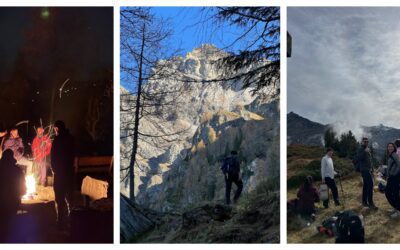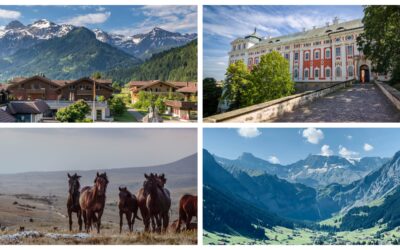|
|
Cities and travel destinations need to constantly adapt to meet the needs of the market, and the Workation market segment is a growing segment with lots of potential. According to a recent survey conducted by PayInOne, 65% of US workers are planning to take a Workation in the next year.
However, some cities have been reluctant to engage with this segment, assuming Workation = digital nomadism. Not only do digital nomads often have special visa needs that are beyond the scope of what destinations can offer, but they have received some bad press lately for gentrifying and disrupting local communities. While digital nomads probably aren’t to blame for many of the woes laid at their feet, what matters more is that the Workation market and digital nomad markets are simply not the same.
Hubs Travel specializes in creating Workation experiences and has developed a deep understanding of the Workation market and what the segment needs. Let’s deep dive into the (1) difference between digital nomads and those looking for a Workation, (2) the types of people who participate in Workations, and (4) what their principal needs are.
Digital Nomadism vs Workations
While there is no single way to be a digital nomad, most digital nomads are fully remote workers who choose travel as a lifestyle and therefore more-or-less work and travel full-time.
They could be a “backpacker” style nomad, moving frequently to take in as much of the world as possible. They could be committed to getting to know a place long-term, taking advantage of a digital nomad visa to stay put for six to 18 months. They may choose to split their time, spending part of the year at a home base and part of the year traveling.
Whatever their particular brand of digital nomadism, they have chosen a location-independent approach to work, building their life around where they want to be and making their career fit that, rather than letting where they work dictate where they live.
While digital nomads may choose to participate in Workations, the Workation market segment is much broader. In theory, anyone who can work fully remotely for a limited period may choose to go on a Workation. A Workation is simply combining travel and work. You choose a vacation destination because it is a place you are interested in, because it will allow you to relax or spend time with family, or because you are looking for a change of scenery and pace to deal with burnout or find inspiration. But wherever you plan to go and why, you intend to continue working, combining vacation activities with meeting your full or agreed-reduced work commitments.
You can read our full guide to Workations here.
The Workation Market Segment
While being able to work fully remotely for a period is generally a prerequisite for a Workation, beyond that, in theory, anyone could decide to take a Workation. But based on Hubs-Travel’s experience hosting Workations, what types of people tend to book Workations?
Corporate Remote Workers
Despite the recent return to the office trends, larger corporate organizations tend to have remote-first approaches to working since the pandemic. As well as job security, they tend to offer flexible remote working policies. Even those who are pushing for a return to the office tend to offer the opportunity for limited periods of remote work, ideal for a Workation, as a perk.
These employees tend to choose to work abroad for one to three-month periods, often in search of a change of routine, the opportunity to fully focus on a professional or personal project, or gain inspiration from being exposed to new environments.
Case Study: A UX designer at a major tech company joined a Hubs.Travel Workation in a village in the Swiss Alps to escape city life while staying fully engaged with their team.
Freelancers & Entrepreneurs
Independent professionals, including freelancers and entrepreneurs, often have the freedom to book Workations around projects and commitments. They will often choose a Workation when they have significant deep work to do with no face-to-face client contact as a Workation provides an affordable and structured environment for focused work.
For them, networking with other professionals and making new connections can also often be a bonus of a Workation, since it offers an opportunity to bond and share ideas with like-minded people.
Case Study: A freelance copywriter joining a Hubs.Travel Workation in a rural area to boost focus and connect with like-minded professionals.
Hybrid Workers & Consultants
This group represents professionals who usually work in the office but have the freedom to take extended trips at certain times of the year. They are often most in need of a change of scenery to avoid burnout in high-stress environments or to seek new environments and inspiration to reinvigorate their work.
A Workation allows these types of workers to enjoy a temporary change in lifestyle while still staying professionally active. Like freelance workers, they also tend to find the ability to network and make new connections, personal and professional, inspiring.
Case Study: A management consultant spent a few weeks working from a Hubs-Travel Workation location in the Alps before returning to their home base.
Remote Startup Teams
Workations can sometimes be a collective rather than an individual experience. Businesses might decide to send teams on a coworking and retreat experience to form bonds among a new team or boost connections for a remote or hybrid team. They can also be a useful way to bring remote teams together for a short period to produce a major piece of work in a nurturing environment.
It is often startups that see the value in this kind of investment, as the founders often worked remotely for an extended period while creating the business and know that you can’t put a price on teams feeling connected and inspired.
Case Study: A remote-first startup that joined a Hubs.Travel Workation in off-season Bovec in the Slovenian Alps to work intensely on a product launch.
Transitioning Remote Workers
While an increasing number of people are moving towards remote and hybrid work, the transition is not always simple. It can be hard to learn how to build a structured and productive work environment. Many people who are considering embracing the digital nomad lifestyle also consider “try before you buy” before committing to long-term travel.
A Workation can act as a kind of half-way-house that allows people to experiment with both approaches to fully remote working and mixing work and travel.
Case Study: A marketing manager trying remote work for the first time joined a Hubs.Travel experience hub before negotiating a full-time work-from-anywhere contract with their employer.
Key Takeaways for Cities and Destinations
Based on this deeper understanding of the Workation market segment, what are the key takeaways for destinations hoping to attract and host these types of tourists?
(1) People choose to go on Workation for a variety of reasons, but their principal needs are an environment where they can balance the inspiration and personal investment that comes with travel with the structure and focus needed for productivity.
(2) People tend to choose to stay for a limited, fixed period that is often longer than a normal vacation, usually between one and three months. It must represent value for money because of the length of the stay and the fact that they will spend a lot of their time doing routine tasks. Most people do not want to feel like they are paying an excessive amount “to work.” Flexible facilities that include self-catering and laundry are important.
(3) People are seeking comfortable accommodation that can “feel like home” for a number of months, but also reliable workspaces with good Wi-Fi, ergonomic desk setups, quiet spaces for focused work, and dedicated spaces for online meetings. A mix of private and coworking options is valued.
(4) People often value community because they are looking to share experiences, learn, and grow. People who take Workations are also often solo travelers who value being able to connect with like-minded people while away from family, friends, and familiar acquaintances.
(5) Workation travelers may be more inclined to book a “curated” experience at dedicated times of the year and with organized activities such as tours and networking events. This meets the need for connection, and the ability to better balance work and travel by signing up for activities that are already organized, removing some of the stress associated with travel.
Creating an offer for this market segment can be highly valuable for destinations because it can offer a stable and predictable client cycle, often focused on the off-season when destinations can offer discounts to those who book longer-term accommodation. Workations are often booked well in advance, allowing for forward planning, and participants often want similar things when it comes to facilities and activities, so resources can be focused on providing targeted services for a wider audience.
As the Workation market grows swiftly, now is the time for destinations to consider developing a curated experience to meet the needs of this dynamic market segment.










